Average sizes and life expectancy for this breed:
Recognized for their intelligence, Thais are a remarkably people-oriented cat breed that succeeds in being involved in everything that happens in their environment.
Thai cats are a vocal breed that will meet and greet you at the door and tell you everything about their day. They love spending time with their human companion and blossom on love and attention. Because they form such deep bonds with their owners, they do not like being left alone for any length of time. Their outgoing, loving, laidback personalities make them the ideal breed for families with older children.
Thai cats are very energetic, athletic, curious, and sometimes mischievous. They are excellent jumpers and will willingly learn to open drawers, cabinets, and even doors. Make sure to play with them daily using wands and other interactive toys to keep them happy, content and out of trouble. Furthermore, a cat exercise wheel is suggested as it will permit them to entertain themselves when left alone.
As the name suggests, this cat breed comes from Thailand. Thais are a natural breed, developed and produced without the need for human intervention. Thai cats are also known as Wichienmaat or Old-Style Siamese cats.
These feline companions are super friendly, always seeking companionship. So, this cat breed is not for a home where they will be left alone for long periods of time. Thais also have a strong, loving side and adore cuddling up on the sofa with their human companions.
See available kittens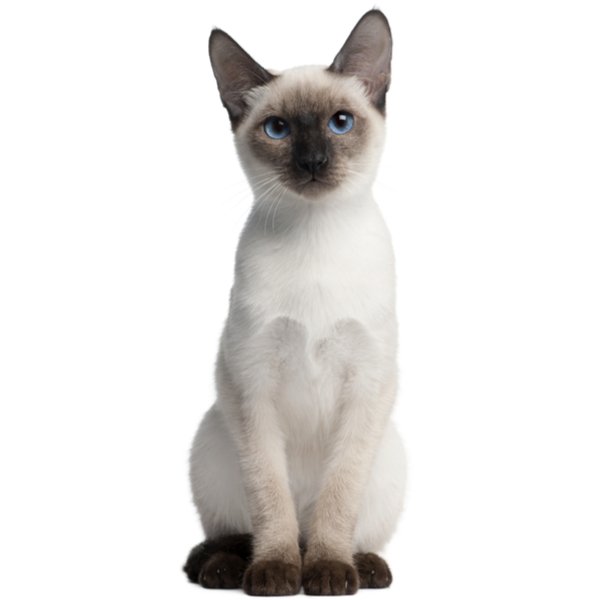

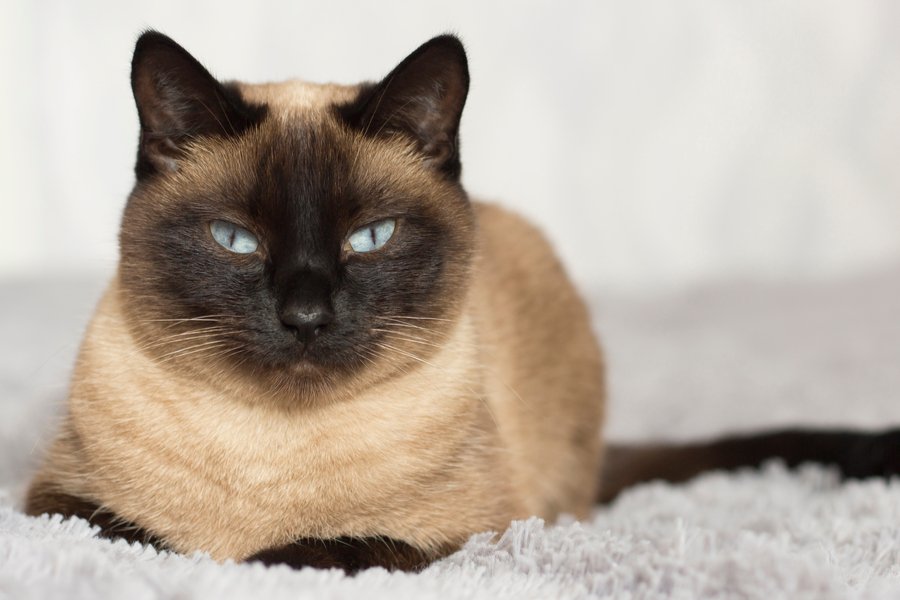


The Thai people have valued this pointed cat breed called the Wichienmaat for at least seven hundred years. From Thailand's well-known Cat Poems called Tamra Maew, we know the Thais bred this cat in the Thai kingdom of Ayutthaya.
In the late 1800s, British citizens found out about the Wichienmaat, a remarkable blue-eyed cat with a whitish body and dark points in Thailand. They were amazed by the fact that these cats can’t be found anywhere else in the world. So, they decided to import these cats, calling them "Siamese."
The Western breeders aimed to enhance the natural pointed breed of Siam. They wanted to make it more consistent and more stunning in appearance. They soon created cats with much deeper blue eyes than those in the cat breed's native country. They also produced a progressively stylized head and body. Many cat owners loved the enhancements in the Siamese, but others still favoured the older, more moderate appearance of the breed.
In the 1950s, the Thai started to separate from the Siamese breed when the cat breeders worldwide decided to breed the moderate, early 20th-century type Siamese. The first breed clubs loyal to the old-style Siamese appeared in Europe and North America in the 1980s.
In 1990, the World Cat Federation in Europe granted the breed championship status and changed the name to Thai to differentiate the old type of Siamese from the show-style Siamese. In 2007, The International Cat Association granted Preliminary New Breed status to the Thai. After two years, it promoted the Thai to Advanced New Breed, which made it possible for cat breeders in Europe and North America to work and show together under a single breed standard.
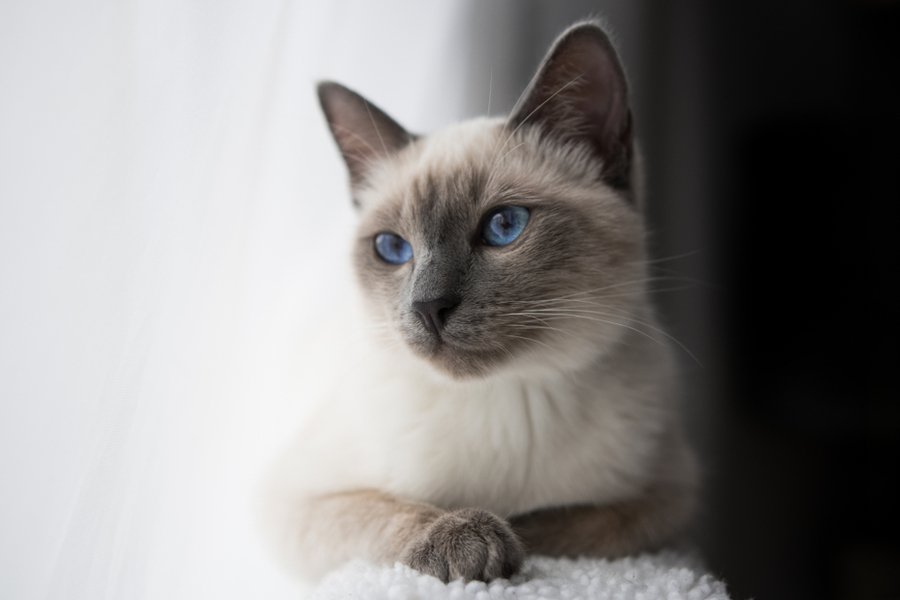
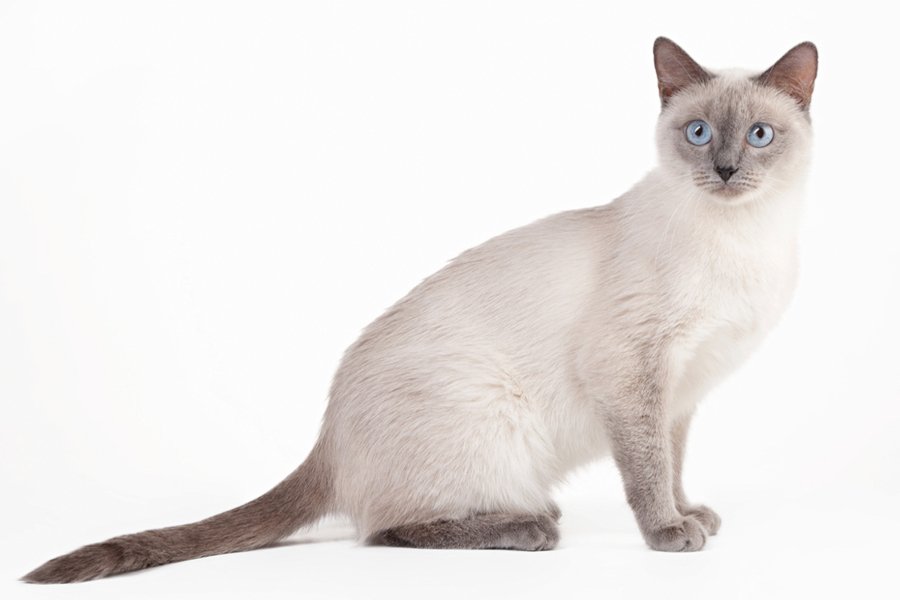
Thai cas can have any point colour, including tortie point and tabby point. The key to differentiating the Thai from other shorthaired, pointed cat breeds is in the details and specifics of their head shape and body style.
Thais are a shorthaired, pointed cat of Oriental type. They are moderately long and large, supple and agile, but in no way intense. Their boning is medium. Their head, legs, and tail are all medium-boned. Because they come from tropical Thailand, Thais have a short, flat coat. It is loose enough to feel smooth and silky but still rather short. Their coat is also not tight and shiny, nor does it feel lush.
The trademark of this marvellous cat breed is their unique head shape. Their forehead is long and flat. There is good width to the head, and the sides are rounded. From their round-cheeked head displays a noticeably wedge-shaped muzzle. At their cheekbones, a slight curve inward is seen to where the muzzle starts. Then, their muzzle recedes steadily toward their nose and the end of their muzzle is slightly spade-shaped. Their broad-based ears are set relatively high and wide on their head, similar to fingers in a "peace sign.
Thai cats are highly intelligent, people-loving, energetic, inquisitive, and gifted with a great sense of humour. According to their owners, living with these comical cats is like living with small children. Thai cats will get into your personal things, leap to the top of your door and do many other silly things. They will giddily follow you around the house and offer “assistance” in everything you are doing.
Thais are exceptional talkers. They are not loud, but they sure are chatty. They will meet and greet you at the door when you come home and will commence chatting away – like children. They also express themselves with taps of their paw or by leaping to the top of your shoulder and rubbing their face on your cheek. They need constant response and daily attention from you because, without it, they will suffer and act out.
Emotionally, Thais are considered high maintenance – in contrast with their grooming needs. In fact, Thai cats will make it a point to follow you from room to room and be involved in everything you do. That is why it is essential to have the patience to give the attention that they need.
Thai cats strongly bond with their human companion. They will do their best to get to know you and become devoted, affectionate, and committed. They are friendly cats that really adore the company of people. They also adore companionship with another feline companion, especially if they are to be left alone at home for long periods.
These cats are also intelligent and playful. They love playing with people, as well as cuddling up in someone’s lap to relax. Because of their need for attention, spending a good amount of time interacting with your Thai cat every day is essential to keep this cat breed content.
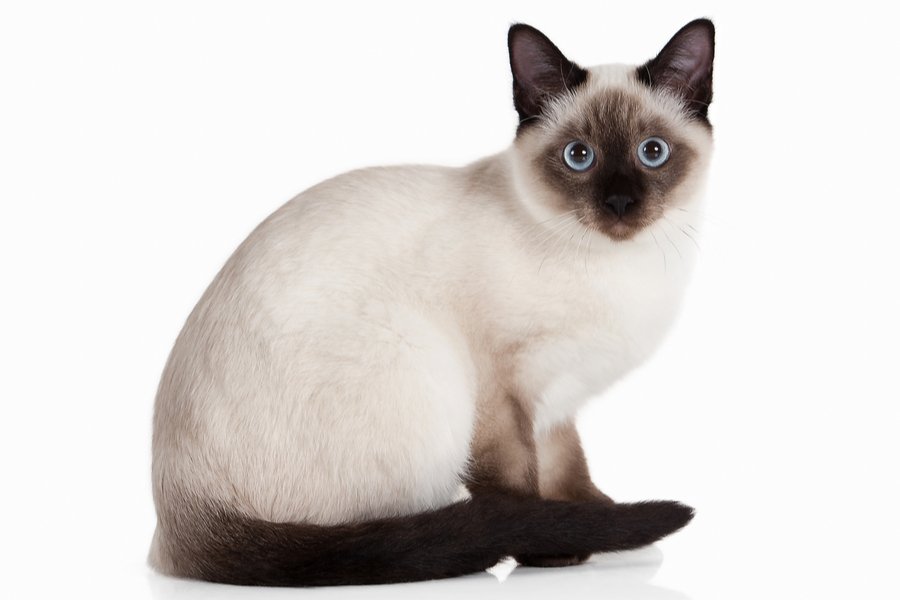
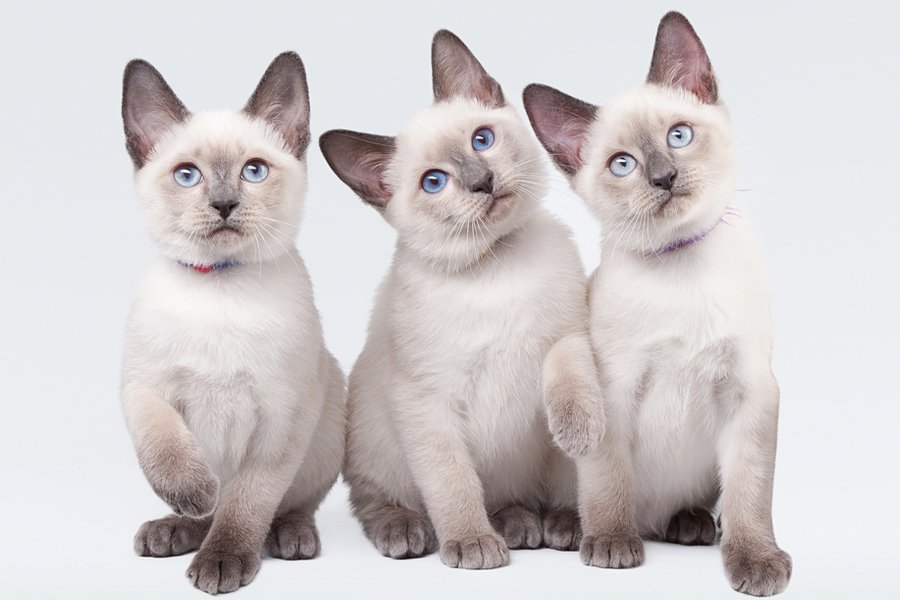
Thais are a bright, very people-oriented cat that blossoms on being involved in everything that happens in their environment. They enjoy discovering and exploring the great outdoors and are curious by nature. However, Thai cats can adapt well to being indoor pets if outdoor access is not possible. Just make sure to give lots of attention and things to do.
Thai cats are highly intelligent and adore the love and attention of being clicker-trained and taught tricks. Challenge their brain and keep them attentive by teaching them games and tricks. Give them puzzle toys that will reward them with treats or kibbles when they learn how to manipulate them. Simulated hunting games are also a great hit with this breed.
When a Thai cat is properly socialised and trained at an early stage, they will grow up to be well-mannered and well-rounded felines.
When it comes to grooming the beautiful and elegant Thai, this short-haired breed is considered low maintenance. Although no brushing is required as they take excellent care of their coats themselves, weekly brushing will help eliminate the chance of any mats or tangles forming.
In terms of climate and weather, most Thais are fairly adaptable cats. However, they prefer to be in warmer climates than colder places to live. With that in mind, ensure they stay warm in the winter with a soft and cosy cat bed and blanket.
Like many other breeds, it is best to check your Thai cat’s ears weekly. If you see dirt or excess wax on their wipe it using a cotton ball moistened with a vet-approved ear cleaner. If you notice a foul odour, give your vet a call to make an appointment for treatment.
Weekly dental brushing is enough to help keep your feline free from teeth and gum disease. Trim their nails twice a month or when needed. Their eyes must be clean by wiping their corners with a clean, soft, damp cloth to remove any eye discharge.
Make sure that their litter boxes are always clean. If it is left unclean, they may develop a habit of using other places of the house to do their business.
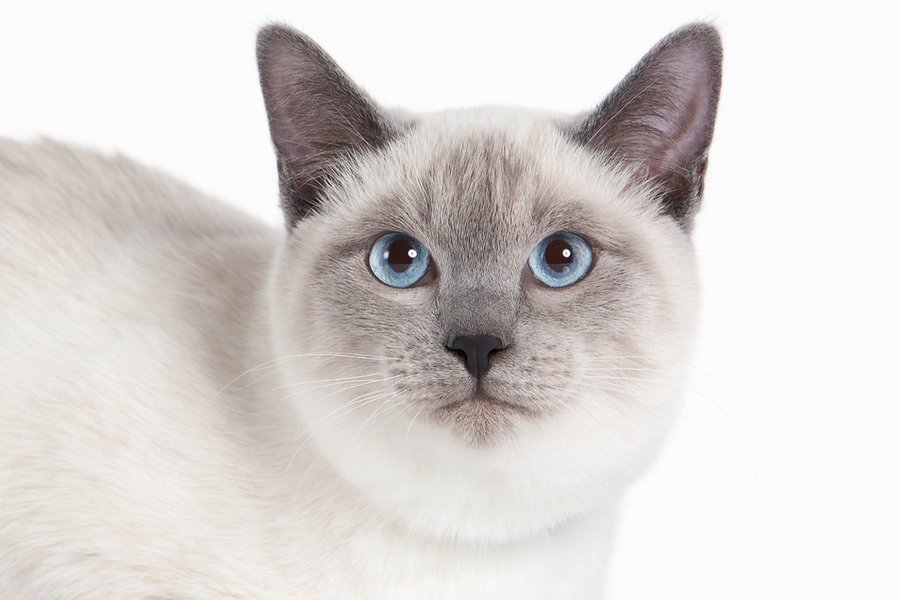
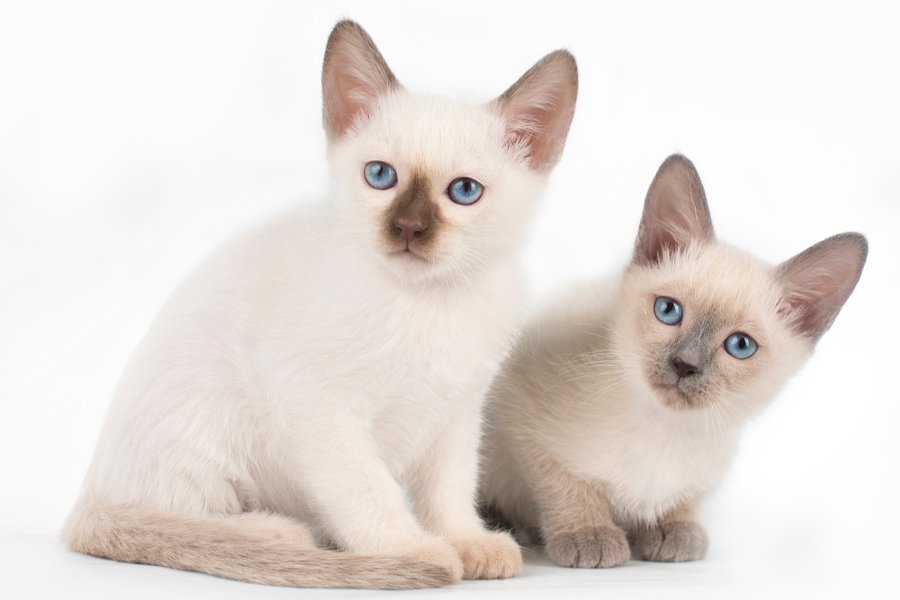
Thais are generally a healthy cat breed that can live a long time. Their life expectancy is between twelve to sixteen years with proper care, exercise and a high-quality diet. While they are not prone to several genetic health issues like other cat breeds, certain conditions have been observed in these cats.
Although Thai cats may be very healthy compared to other breeds, we still highly recommend you buy from a breeder who runs DNA health checks on their cats and kittens. This will rule out any potential inherited diseases and ensure your Thai kitty leads a long and healthy life.
Thais are an excellent match for families with young kids. Just make sure that early socialisation and training take place and boundaries are correctly set on both sides. In addition, always supervise all interactions between your kids and cats.
When it comes to other household pets, the friendly Thai typically gets along well with most domestic animals, including cat-friendly dogs. But as a reminder, always make sure to supervise early interactions between your cat and other existing pets. From time to time, these relationships are very much reliant on individual pets' characters.
Early socialisation and training pay off with this cat breed. Make sure to reward your Thai for good behaviour when you bring them home to your family.
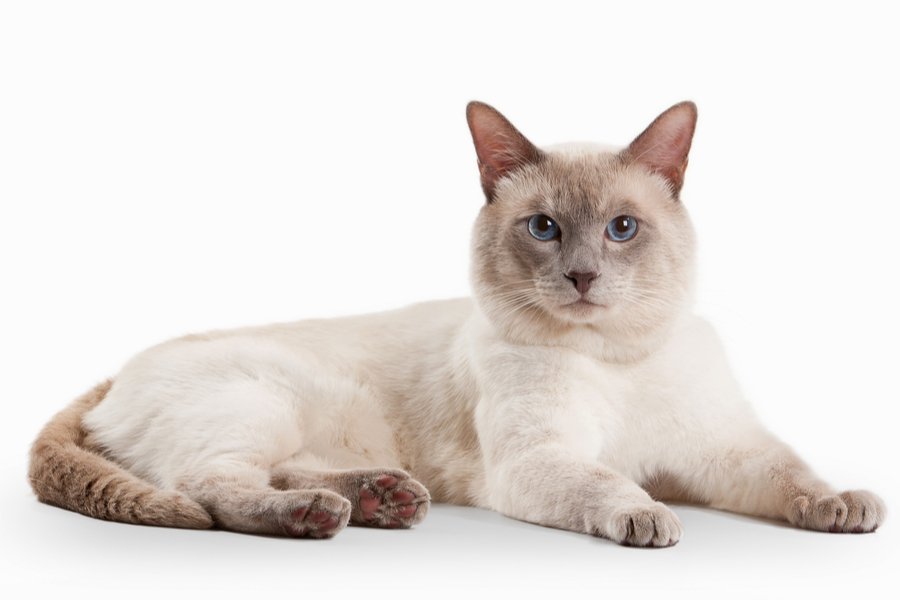
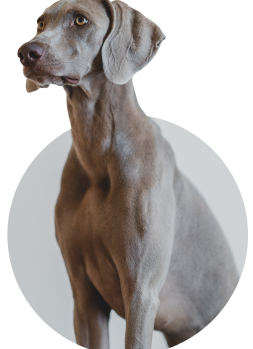
We can connect you with Breeders that are specialized in this particular breed.
See available kittens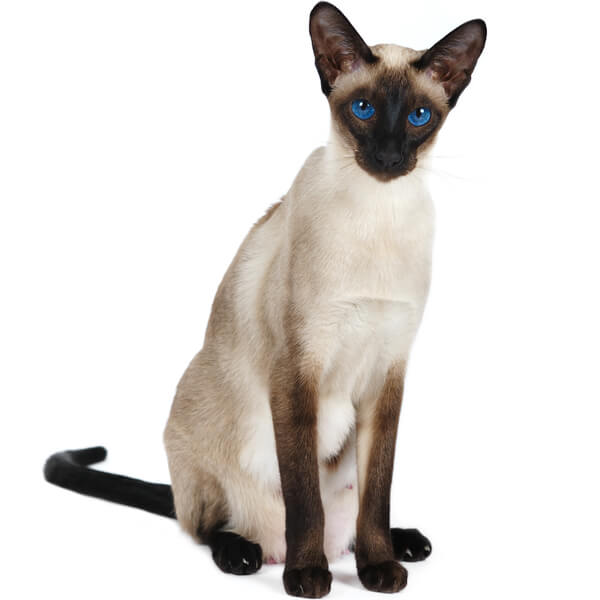
Thailand
Size : Medium
Coat : Short
Registration : GCCF, TICA, CFA, FIFe
Vocality : High
Hypoallergenic : Yes
Grooming : Once a Week
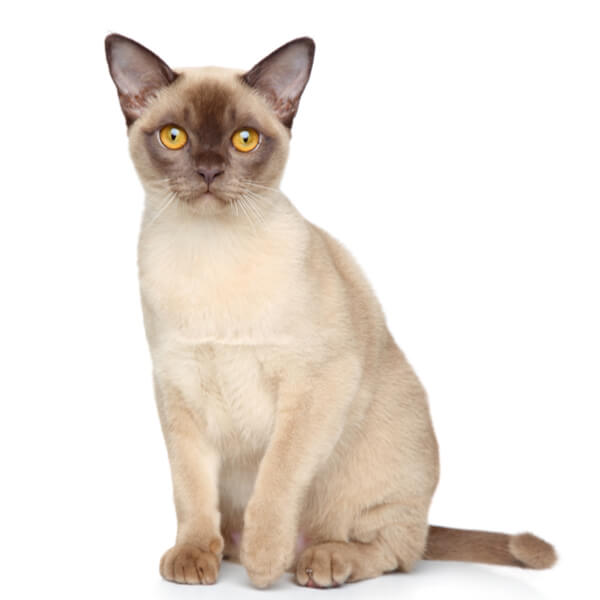
Myanmar
Size : Medium
Coat : Short
Registration : TICA, CFA, FIFe
Vocality : Medium
Hypoallergenic : Yes
Grooming : Once a Week
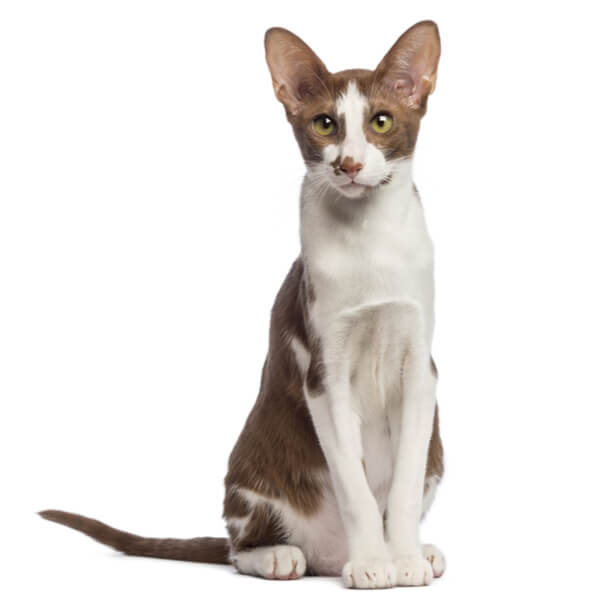
United States of America
Size : Medium
Coat : Short
Registration : GCCF, TICA, CFA, FIFe
Vocality : High
Hypoallergenic : Yes
Grooming : Once a Week
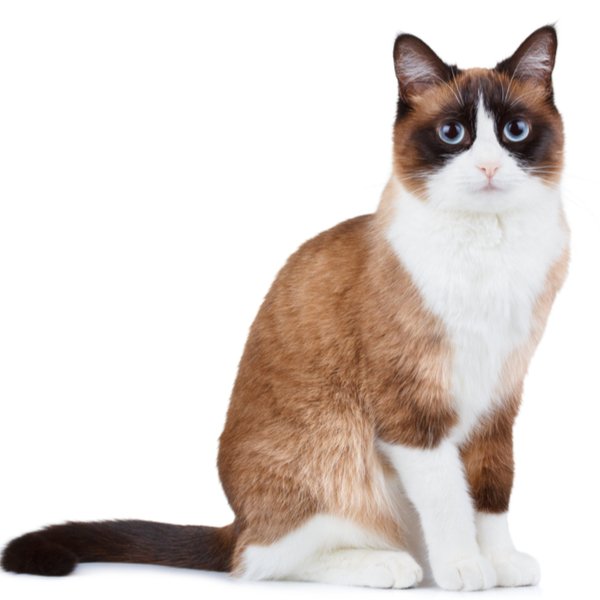
United States of America
Size : Medium
Coat : Short
Registration : GCCF, TICA, CFA, FIFe
Vocality : Medium
Hypoallergenic : No
Grooming : Once a Week


Need some advice?
Whether you're a first time pet owner, an experienced pet owner, a new or long-time breeder, or just curious about pets, we've got you covered!
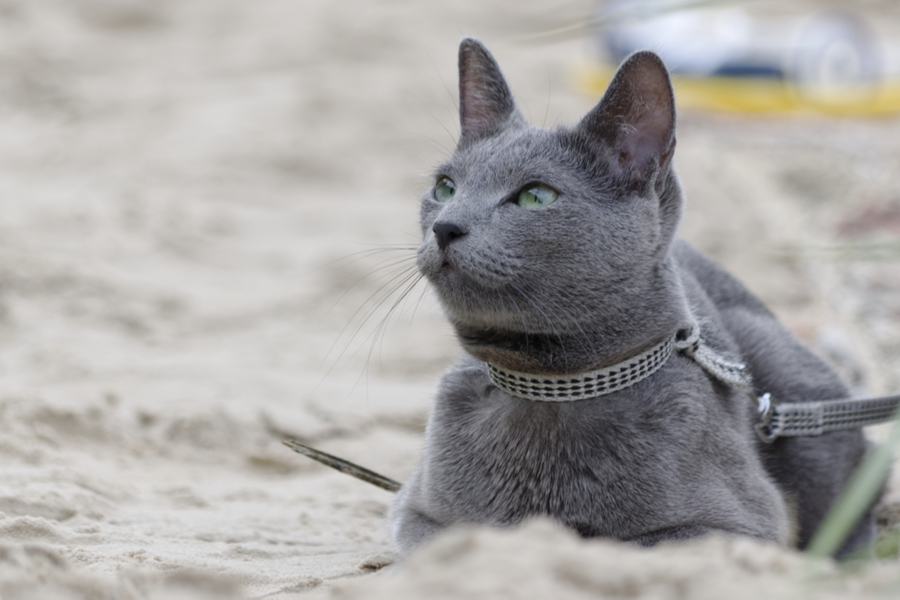
January 17, 2024
What Is The Personality Of Russian Blue Cats?
Russian Blue cats are most known for their distinctive shimmery blue-silver coat and piercing green eyes. However, this breed’s calm and gentle temperament is what makes them shine the most in the feline world.
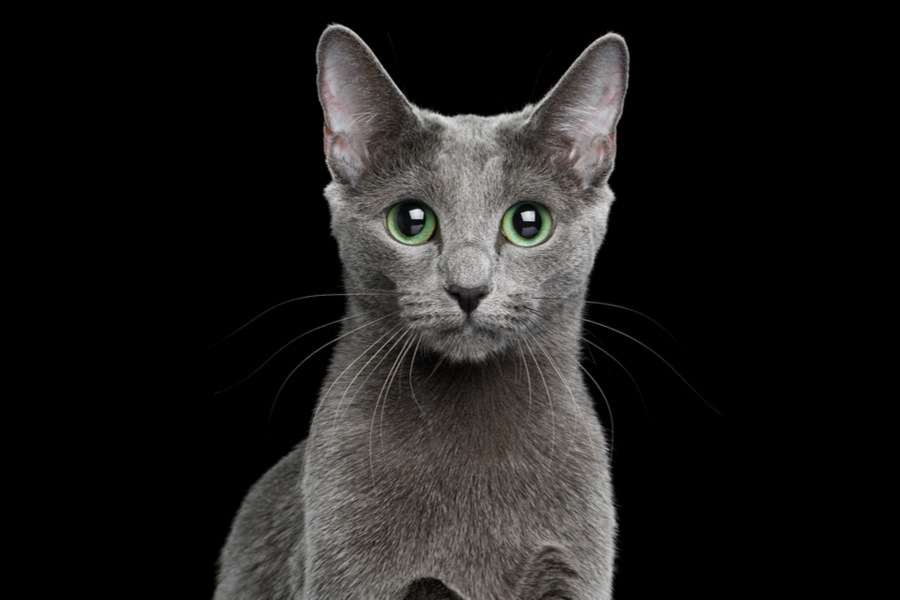
January 17, 2024
10 Facts About Russian Blue Cat Breed
Russian Blues are one of the most aesthetically stunning cat breeds, with a gorgeous plush silvery coat and vibrant green eyes. However, it’s not only their appearance that is beautiful; their nature is too.
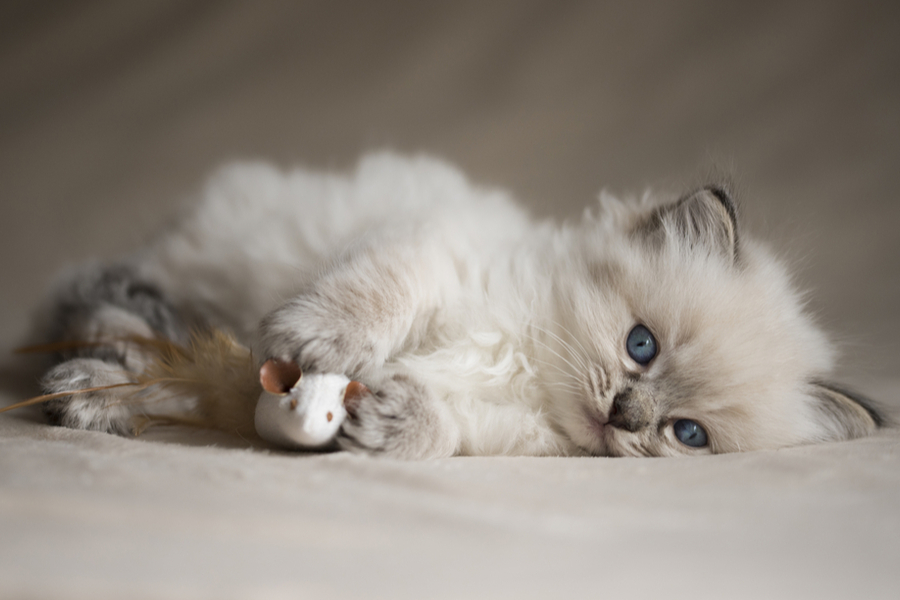
January 17, 2024
How To Choose The Right Cat Breed for You
Cats can make the most fantastic animal companions; they are adorable, friendly, and loving. However, not all felines are created equal. There are many different breeds, of which each has its unique personality traits.
Need some help?
Contact us to speak to our friendly advisor, who will gladly help you find your dream pet!



We are registered in England and Wales under registration number 12568840,
and our registered office is at 58-60 Kensington Church Street, W8 4DB London, England.
© 2023 The Pedigree Paws